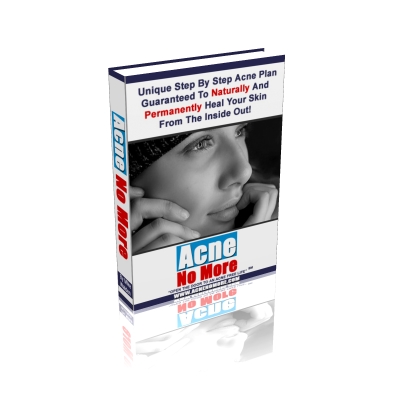Understanding the Devastating Effects of Severe Acne
Severe acne has the power to inflict both physical and emotional scars on individuals. While many people may worry about the occasional zit, acne can severely impact one's confidence and self-perception. It manifests in various forms, including pimples, papules, abscesses, cysts, blackheads, whiteheads, and painful inflammations of the skin. Additionally, acne is not limited to the face; it can affect different areas of the body, such as the back, chest, neck, and more.
The Persistence of Adult Acne
While most individuals endure the brunt of acne during their challenging adolescent years, imagine the agony of dealing with it well into adulthood. With the stress of modern living and increased exposure to environmental pollutants, adult acne has become a prevalent reality for many. Although most people experience temporary acne, some suffer from more severe forms. Let's take a closer look at the most serious types of acne.
Visit: What is Acne? Symptoms and Causes
Acne Conglobata (AC): The Uncommon Disfiguring Acne
Acne conglobata is a rare form of acne that can lead to significant disfigurement. It is characterized by the development of burrows in the skin, accompanied by papules, abscesses, keloidal and atrophic facial scars. Those with AC often experience clustered blemishes, with pus-filled cysts and nodules often present, especially on the back and chest.
Understanding the Susceptibility to Acne Conglobata
In general, males are more susceptible to acne conglobata. The onset of this condition usually occurs at a young age, between 18 and 30. While the exact cause of AC is unknown, some speculate that it may be linked to a mutation in the XXY karyotype chromosomes. Individuals affected by AC may suffer from extensive scarring, leading to disfigurement. Due to the dramatic effects of this skin disorder, they may also face challenges related to self-esteem, depression, anxiety, and social stigma.
Acne Fulminans (AF): The Aggressive Acne Variant
Originally mistaken for acne conglobata, acne fulminans, also known as acne maligna, exhibits sudden onset ulcerating acne, often accompanied by fever and symptoms of polyarthritis. Conventional acne treatments, such as antibacterial therapy, usually do not yield positive results with AF. The most successful treatments typically involve debridement combined with steroid therapy.
Uncovering the Causes of Acne Fulminans
Acne fulminans is believed to stem from a weakened immune system and elevated levels of testosterone and certain anabolic steroids. These hormonal imbalances increase sebum production and the presence of acne-inducing bacteria called propionibacterium acnes (P. acnes). Some experts also suspect that isotretinoin, a medication used to treat acne, may trigger the onset of AF.
Differentiating Between Acne Conglobata and Acne Fulminans
Although the physical symptoms of these conditions may initially appear similar, AF is often characterized by more intense pain. Patients with AF may describe bone or facial pain, migraines, and fever. Treatment approaches also differ; while AC can be managed with conventional anti-acne oral and topical agents, AF generally responds better to steroid treatments.
Gram-Negative Folliculitis: Infection After Antibiotic Therapy
Gram-negative folliculitis refers to an infection caused by gram-negative rods, which typically occurs after a prolonged period of antibiotic therapy. The term "gram" describes the blue stain used in laboratories to locate microscopic organisms. However, the bacteria responsible for gram-negative folliculitis does not stain blue, hence the term "gram-negative." The most common bacteria associated with this condition include E. coli, serratia marcescens, pseudomonas aeruginosa, and bacteria from the proteus and klebsiella species.
Contrasting Gram-Negative Folliculitis and Regular Acne Vulgaris
Unlike acne vulgaris, most cases of gram-negative folliculitis produce fewer papules and comedones. Fortunately, this severe form of acne is more manageable than others. Conventional antibiotic therapy is often effective in treating gram-negative folliculitis, and isotretinoin may also be beneficial in clearing this condition.
Conclusion: A Path to Acne-Free Skin
Acne can be a distressing condition, impacting both physical appearance and emotional well-being. Understanding the various forms of severe acne, such as acne conglobata, acne fulminans, and gram-negative folliculitis, is crucial in seeking appropriate treatment. By recognizing the unique characteristics and causes of each variant, individuals can navigate their journey towards clear and healthy skin.
Are you tired of dealing with acne? Discover how to achieve the freedom of clear skin with our proven system. Visit [AcneNoMore.com] to learn more and take the first step towards overcoming acne for good!


















0 Comments